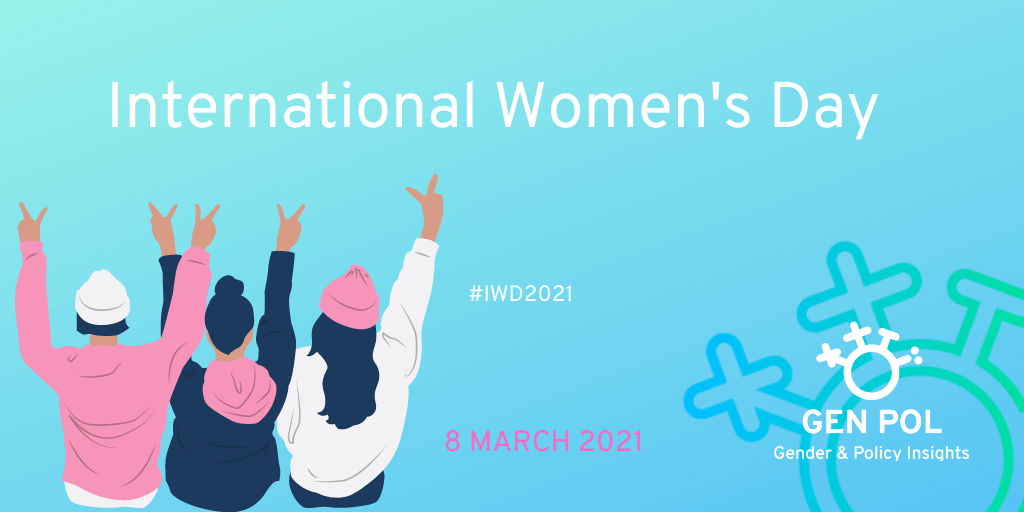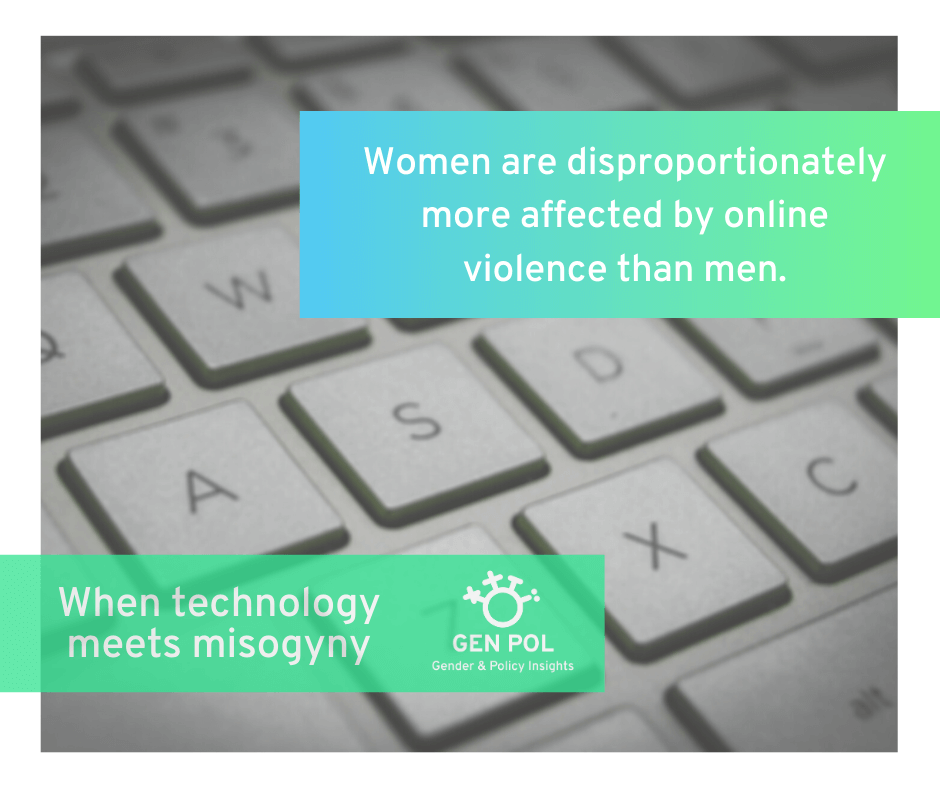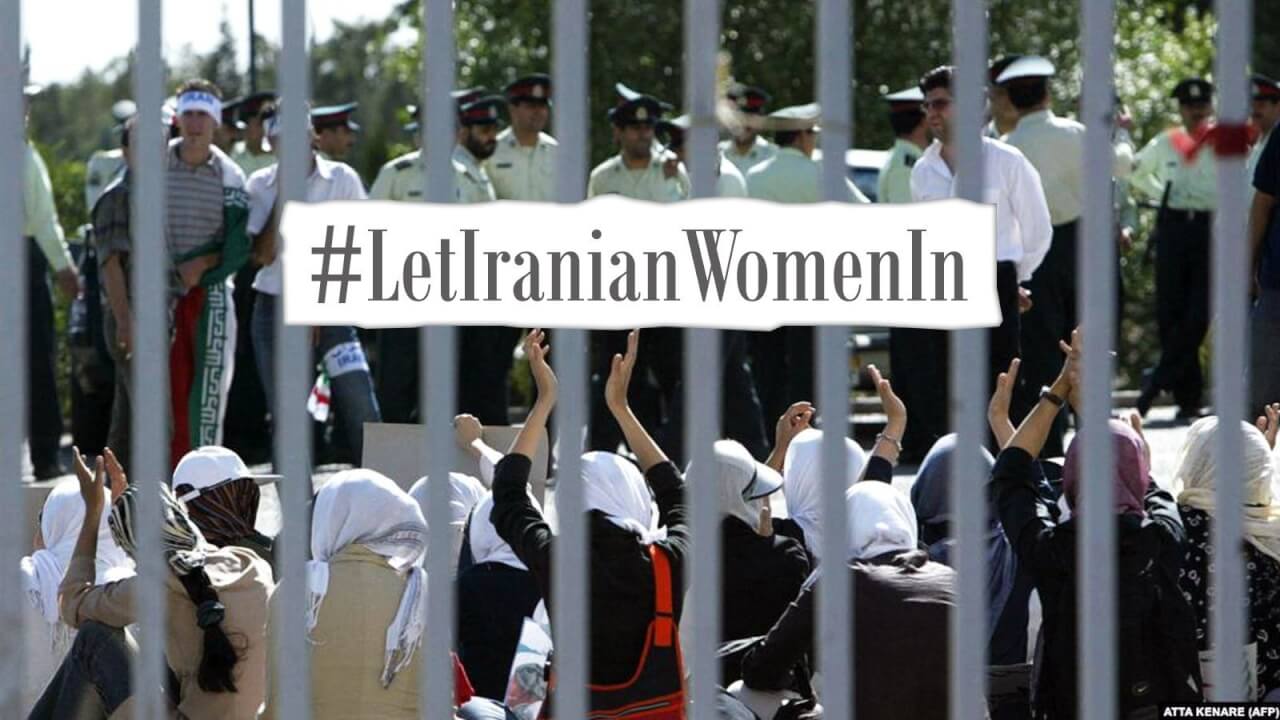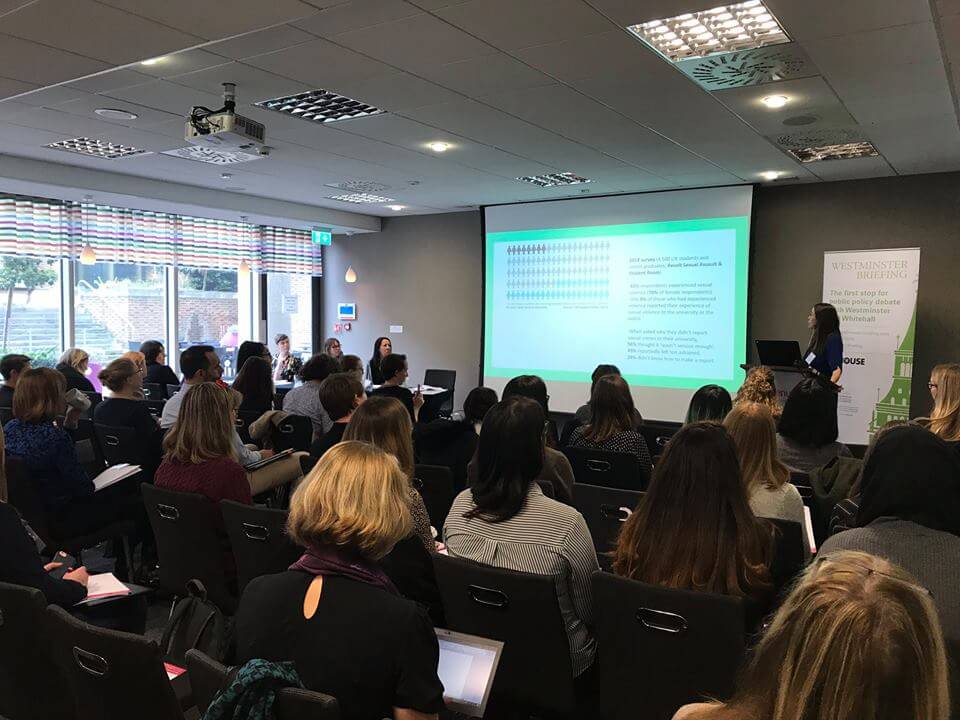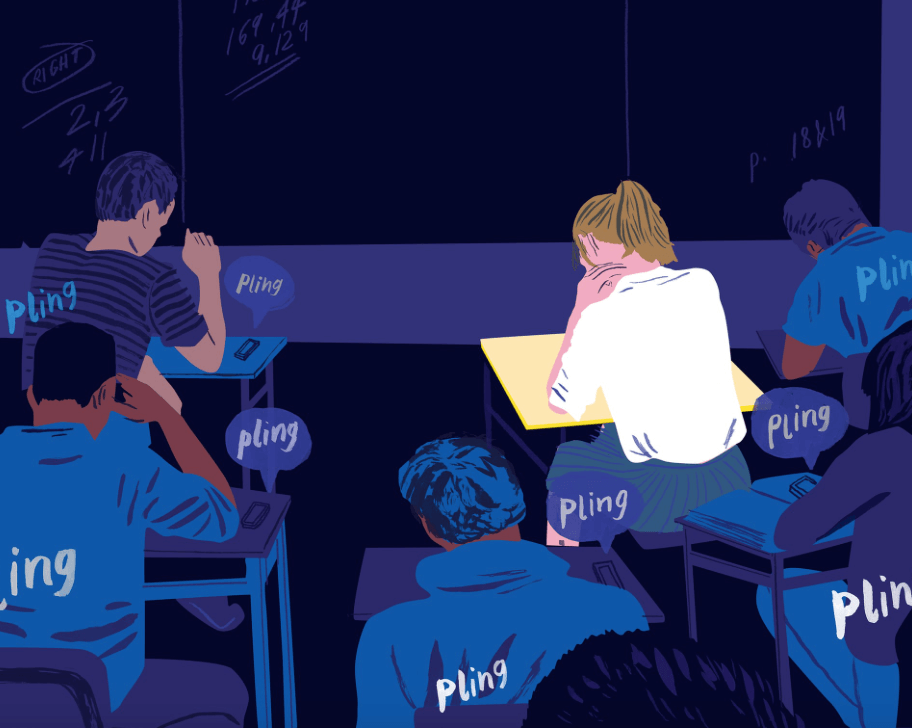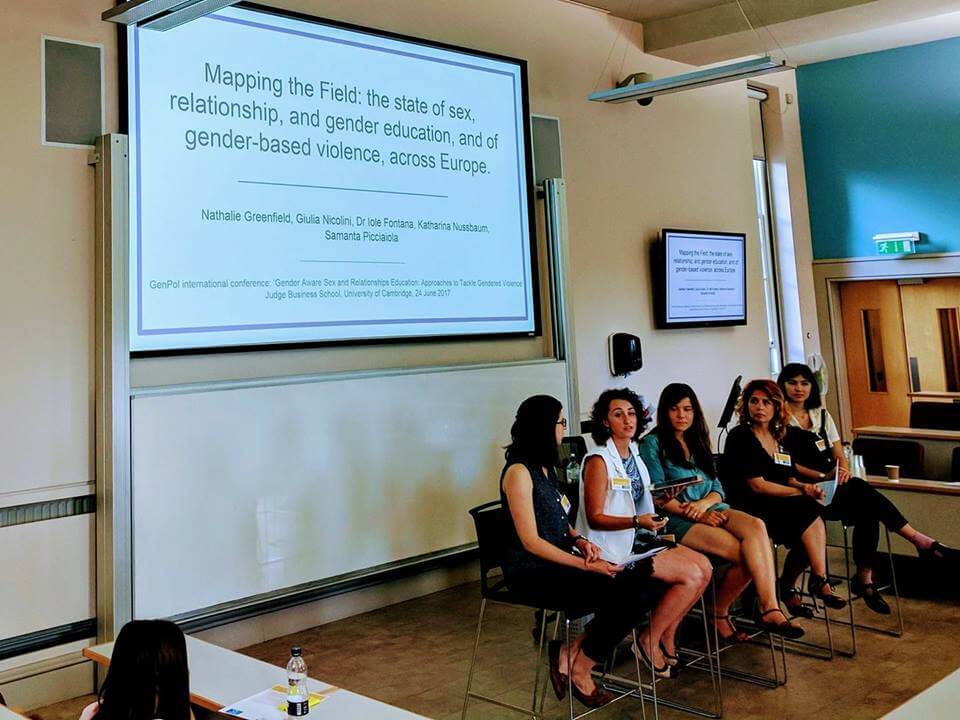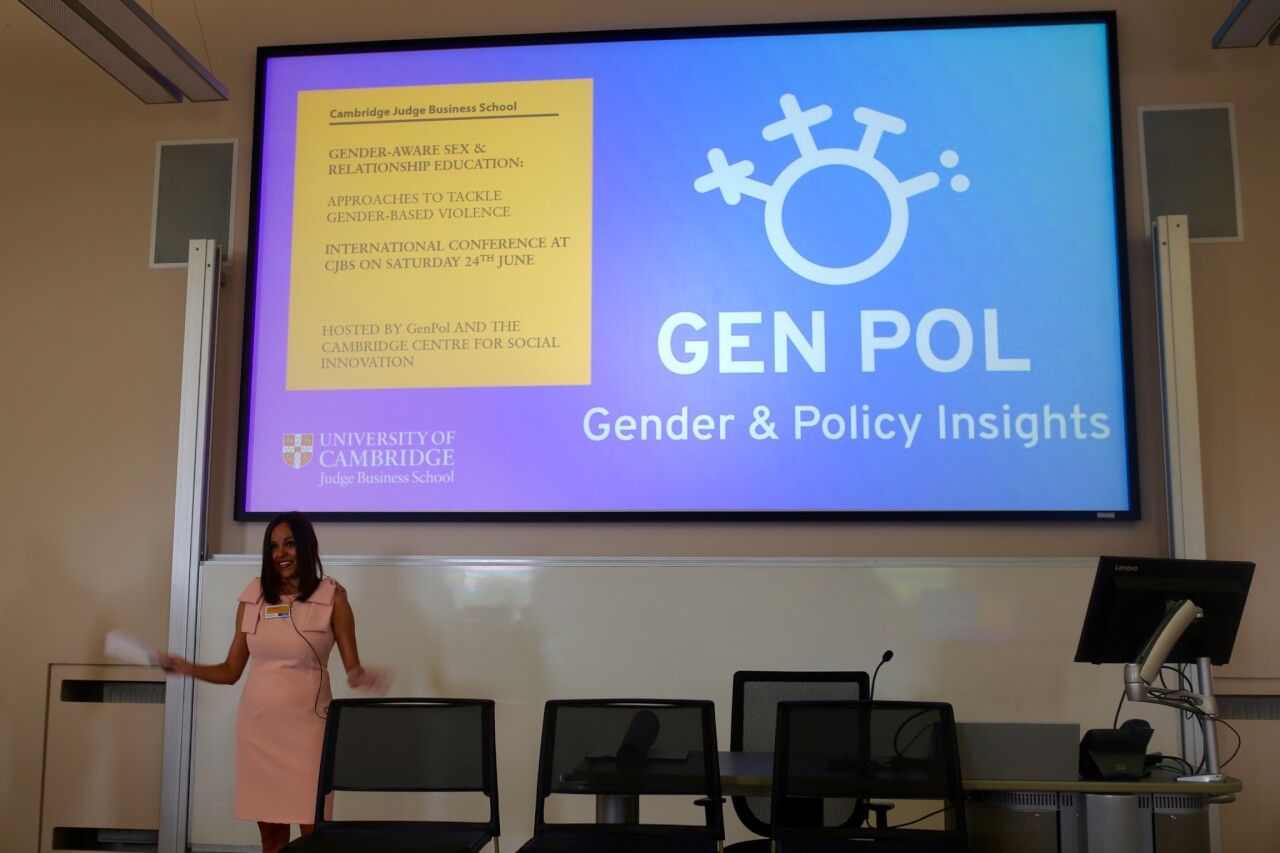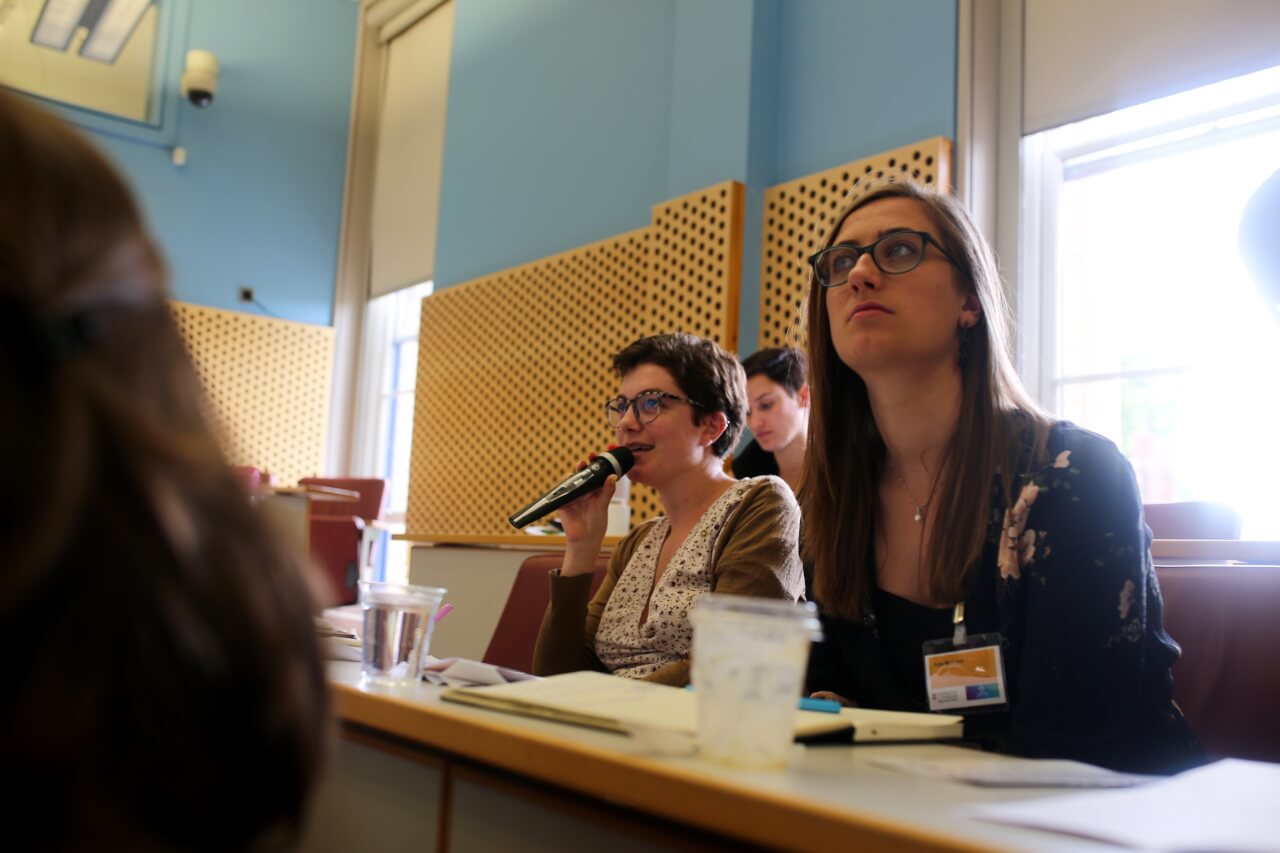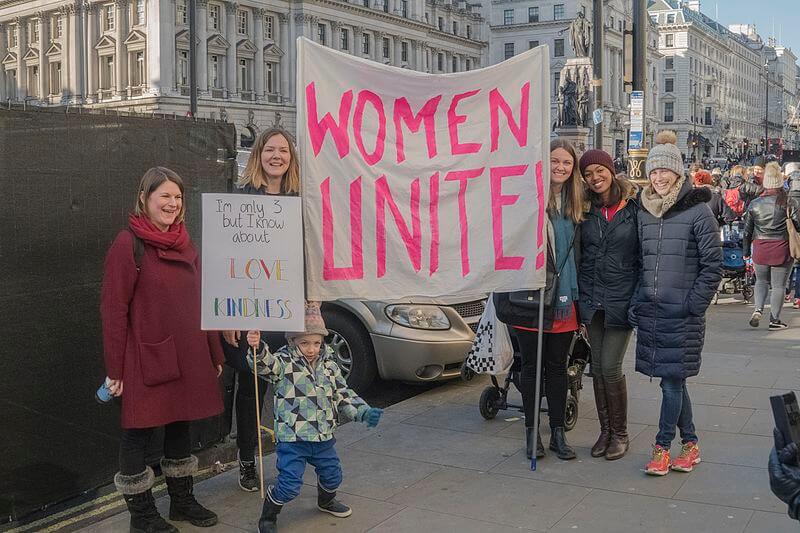
“The connections between and among women are the most feared, the most problematic, and the most potentially transforming force on the planet” – Adrienne Rich
Within my research, I focus on men’s support for gender equality, and I am convinced their support is crucial. We need those men that affect gender equality by means of holding power positions to support the cause, and we need all men to take over an equal share of household chores and childcare, so that women are less restricted and can excel to their full potential in other areas of life.
Lately, however, I have returned to the roots of feminism – a collective movement of women standing up for their rights. Attending last year’s women’s march I walked close to a group of women singing “As we go marching, marching, We bring the greater days, For the rising of the women, Means the rising of the race”. I felt inspired and felt that the sisterhood was alive and well, somewhere. What about women’s solidarity within the workplace, however?
Women’s Relationships in the Workplace
Numerous contemporary articles and books discuss workplace relationships among women. Oftentimes, authors focus on the detrimental nature of these relationships, signified by titles such as “Why Women Are Their Own Worst Enemy“. The existence of terms such as “cat fighting” (an altercation between two women), or “Queen Bee” (a female boss who is perceived as harsher to junior women than male bosses) further emphasizes the relevance and the tone of this discourse. “Women gossip about each other, and judge each other with very critical eyes”, a female employee interviewed for the purpose of this article confirmed, “we sometimes envy and then create problems for each other in the workplace.”
At a closer glance, however, this narrative might reveal itself as a little one-sided. It is unlikely that all relationships among women are tainted by behaviours of malevolence and rivalry. Almost all women I spoke to could indeed recall moments of female solidarity. One woman working in recruitment reported: “If I think that a woman has the right attributes I inform her directly about an open position that I know about”. Similarly, several women reported that they encourage their female co-workers to apply for challenging positions. One woman reported that a co-worker would happily take over her work when she needed to leave early to pick up her child, and others remembered colleagues who introduced them to valuable members of their professional networks. Lastly, some women mentioned that they might speak up or advocate for other women in difficult situations.
Women Networks
Whilst these individual efforts are absolutely worthwhile, a more structured approach might accelerate the pace of change. Throughout the past decade, official networks for women have become increasingly popular.
Alexandra Ekkelenkamp, board member of the the BrusselsNV network for Dutch-speaking women, is convinced of the important role that networks play in empowering women. She explained some of the benefits to me: “Within our network, we organize trainings to further develop our members’ skills and we provide women with powerful female role models”.
Carmen Vera Garcia, leader of the Leadarise network for young women, emphasises the importance of providing women, and especially younger women, with the opportunity to connect with others in a way that suits them: “In our network we make sure that everyone feels welcome, and we facilitate conversations among the members. Our events are less formal than common networking events, and might therefore make it easier to connect. The reason is that we understand and promote networking as a way to build meaningful and sustainable relationships, and to help each other”.
Similarly, the Gentlewomen’s Club focuses less on career development but rather on providing women with a safe space. Co-founder Sabina Ciofu explains the philosophy of the network: “Ultimately, we challenge mentalities and help our members create meaningful and supportive relations with other women – we aim at replacing competition with collaboration, envy with admiration and judgement with understanding”.
Functions of Women’s Networks
The board members’ philosophies converge with current research: exposure to role models, safe spaces, and networking opportunities have been identified as essential ways of fostering more female success stories.
A lack of role models, i.e. individuals who provide an example of the kind of success one may achieve, is a key reason for the under-representation of women in positions of prestige and power. In the words of Chelsea Clinton: “(…) it’s really hard to imagine yourself as something that you don’t see (…)”. Indeed, role models can positively impact on success beliefs, attitudes towards the self, aspirations and values, especially when role model and role aspirant share group membership. Getting acquainted with more senior women in women’s networks might hence have a positive impact on the careers of junior women.
All-female environments might make it easier for women to share their thoughts on workplace conflicts. Other women might have experienced similar problems, and can give useful advice. In the form of formal trainings or informal gatherings, women’s networks might provide this safe space that is often absent in an ordinary workplace environment.
Women’s networks further offer great opportunities to connect to other women in one’s field. Members of one network can actively and consciously suggest each other for speaking opportunities, projects, or job openings. Considering that in 2016 70% of people were hired at a company where they knew someone, these connections are invaluable. Currently, men might experience an advantage in this regard due to the so-called old boys’ network: men find it easier to connect with those in high-level positions who are predominantly male. Sharing similar experiences, interests, and after-work activities that women might have less access to results in the kind of natural bonding that women’s networks are trying to simulate.
Solution to gender inequality?
More critical voices lament that women’s networks cannot simulate these organic bonds that men form, and will therefore always be lacking. Moreover, it is justified to ask whether a focus on women’s groups unfairly places responsibility for change on women, and whether we should rather aim for more holistic and inclusive solutions. Laura Bates, founder of everyday sexism, noted that it is indeed a problem that “it tends to be mainly women who are involved in diversity projects and mentoring networks”.
After hours of interviewing female employees and women’s networks board members, I conclude that it is useful to tackle the issue from two fronts. Whilst we must not exclude men from this conversation, women’s networks have their own place in women’s empowerment, and provide one route towards more gender equality.
Antonia Sudkämper
Research Associate
















